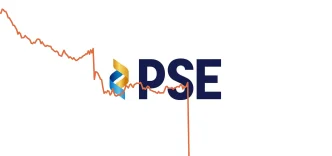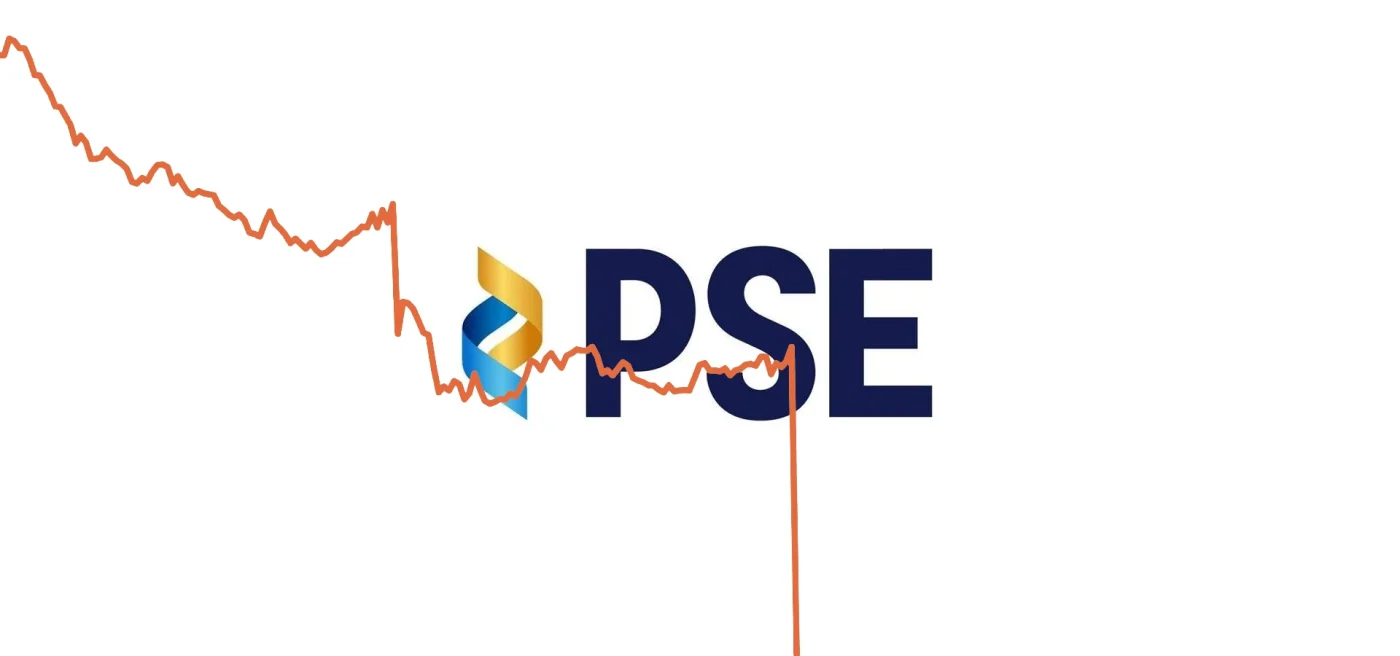The Philippine Stock Exchange (PSE) experienced a muted but noticeable decline on Monday, May 19, 2025, as news of Moody’s unprecedented downgrade of the United States’ credit rating rippled through global markets. The benchmark PSE Index (PSEi) closed at 6,454.84, down 0.17 percent or 10.69 points, after opening on a positive note. The broader All Shares Index also slipped by 0.1 percent, shedding 3.71 points to settle at 3,765.66. Trading volume reflected a cautious mood, with 755.1 million shares worth 6.2 billion Philippine Pesos (US$105 million) changing hands.
Market Sentiment Shaken by US Downgrade
The historic downgrade of the US credit rating—the first of its kind by Moody’s—cast a shadow over investor confidence in Manila. While the move had been anticipated by some analysts, its confirmation prompted a tepid reaction at the local bourse. Juan Paolo Colet, managing director at China Bank Capital Corp., noted that the market’s response was restrained but reflective of broader uncertainties. “While the downgrade itself was not a surprise, investors are waiting to see whether the move triggers a more adverse movement in US Treasury yields that could potentially unsettle equity markets” he said.
The concern lies in the potential for rising US Treasury yields to draw capital away from riskier assets like equities, particularly in emerging markets such as the Philippines. Japhet Tantiangco, research head at Philstocks Financial Inc., highlighted the risk of higher market interest rates in the US making stocks less attractive. “If borrowing costs rise significantly in the US, investors may shift focus away from equities toward safer fixed-income assets” he explained. This dynamic could exacerbate pressure on markets already grappling with domestic economic challenges and global volatility.
Sectoral Impacts and Stock Movements
The impact of the downgrade was uneven across sectors at the PSE. Property firms bore the brunt of the sell-off, recording the steepest losses as investors reassessed exposure to interest rate-sensitive industries. Rising borrowing costs often hit real estate hardest, as higher rates can dampen demand for mortgages and property investments. Ayala Land Inc., a major player in the sector, saw its shares decline by 2.14 percent to 22.90 Philippine Pesos (US$0.39) per share.
Conversely, services and mining and oil firms emerged as relative bright spots. International Container Terminal Services Inc. led trading activity, gaining 1.46 percent to close at 416 Philippine Pesos (US$7.06) per share. Among other notable movements, JG Summit Holdings Inc. surged by an impressive 13.33 percent to 20.40 Philippine Pesos (US$0.35) per share, buoyed by news of its plans to expand investments in airport infrastructure—a sector seen as resilient amid economic headwinds.
However, several blue-chip stocks faced downward pressure. BDO Unibank Inc. dropped 1.62 percent to 157.80 Philippine Pesos (US$2.68), while Ayala Corp. fell 1.7 percent to 550.50 Philippine Pesos (US$9.34). Emperador Inc. and Metropolitan Bank and Trust Co. also recorded modest declines of 0.44 percent and 0.77 percent, respectively. On the other hand, some stocks like Bank of the Philippine Islands and Universal Robina Corp. remained flat, signaling a mixed investor response to the unfolding situation. Overall, losers outnumbered gainers, with 109 companies declining compared to 86 advancing and 49 closing unchanged.
Broader Implications for the Philippine Economy
The US credit downgrade arrives at a delicate moment for the Philippine economy, which has been navigating a complex landscape of inflationary pressures, currency fluctuations, and uneven post-pandemic recovery. The Philippine Peso, already under strain against the US dollar, could face further depreciation if the downgrade leads to a stronger flight to safety among global investors. This, in turn, could raise import costs and fuel inflation—a persistent concern for policymakers in Manila.
Moreover, the potential for higher US interest rates poses a dual challenge. On one hand, it could attract capital outflows from the Philippines as investors seek higher returns in US markets. On the other, it may increase the cost of external borrowing for the Philippine government and corporations, many of which rely on dollar-denominated debt to fund infrastructure projects and business expansions. The Bangko Sentral ng Pilipinas (BSP), the country’s central bank, may face mounting pressure to adjust its own monetary policy to stabilize the peso and curb inflation, even if doing so risks slowing domestic growth.
Beyond immediate market reactions, the downgrade underscores the interconnectedness of global economies. The Philippines, like many Southeast Asian nations, maintains strong trade and investment ties with the US. A slowdown in American consumer spending or economic activity—potentially triggered by tighter financial conditions—could dampen demand for Philippine exports, including electronics, garments, and agricultural products. Remittances from overseas Filipino workers in the US, a critical lifeline for the economy, might also be affected if economic conditions there worsen.
Investor Caution Amid Uncertainty
Analysts suggest that the full impact of the US credit downgrade may take weeks or even months to materialize, as markets digest the implications for global financial stability. For now, investor sentiment in the Philippines remains cautious, with many adopting a wait-and-see approach. The PSEi, which has shown resilience in the face of earlier global shocks, could face further volatility if US Treasury yields spike or if additional downgrades from other rating agencies follow.
Some market observers, however, see potential silver linings. The relative strength of certain sectors, such as services and infrastructure-related stocks like JG Summit Holdings, suggests that domestic growth drivers—particularly government-led infrastructure initiatives under the “Build Better More” program—could provide a buffer against external shocks. Additionally, the Philippines’ young and growing population, coupled with increasing digital adoption, continues to attract long-term investors seeking exposure to emerging market opportunities.
Regional and Global Context
The Philippine market’s reaction to the US downgrade mirrors broader trends across Southeast Asia, where equity markets in countries like Indonesia and Thailand also experienced declines on Monday. Jakarta’s Composite Index fell by 0.3 percent, while Bangkok’s SET Index dipped by 0.2 percent, reflecting shared concerns over the potential spillover effects of tighter US monetary conditions. In contrast, Singapore’s Straits Times Index showed marginal gains, buoyed by its status as a regional financial hub less exposed to interest rate fluctuations.
Globally, the downgrade has reignited debates over the US dollar’s dominance as the world’s reserve currency and the long-term sustainability of American fiscal policy. While the immediate market reaction has been relatively contained, analysts warn that prolonged uncertainty could undermine confidence in US debt, with far-reaching consequences for emerging markets reliant on dollar-based trade and financing.
Looking Ahead
As the dust settles on Moody’s historic decision, questions linger about how the Philippine Stock Exchange—and the broader economy—will weather the potential storm. Investors are keenly watching US economic indicators, particularly Treasury yields and Federal Reserve signals, for clues about the trajectory of global markets. At home, the government’s ability to sustain economic momentum through infrastructure spending and policy reforms will be critical in maintaining investor confidence.
For now, the mood at the PSE remains one of cautious recalibration. While Monday’s decline was modest, it serves as a reminder of the fragility of interconnected financial systems. As one trader in Taguig City put it, “We’re not in crisis mode yet, but everyone’s on edge waiting for the next shoe to drop.” Whether that shoe falls, and how hard, may well shape the trajectory of the Philippine market in the months ahead.
















